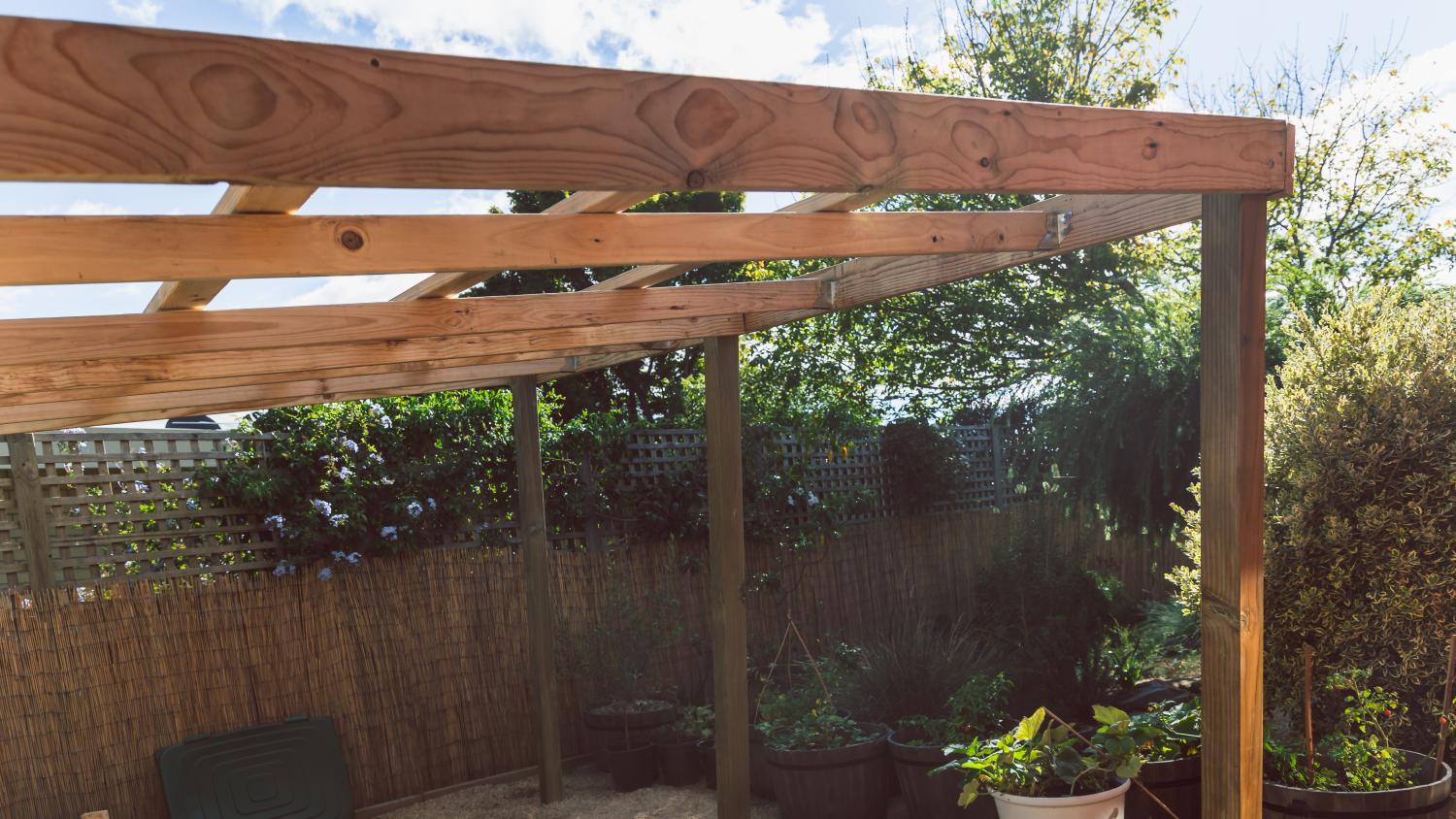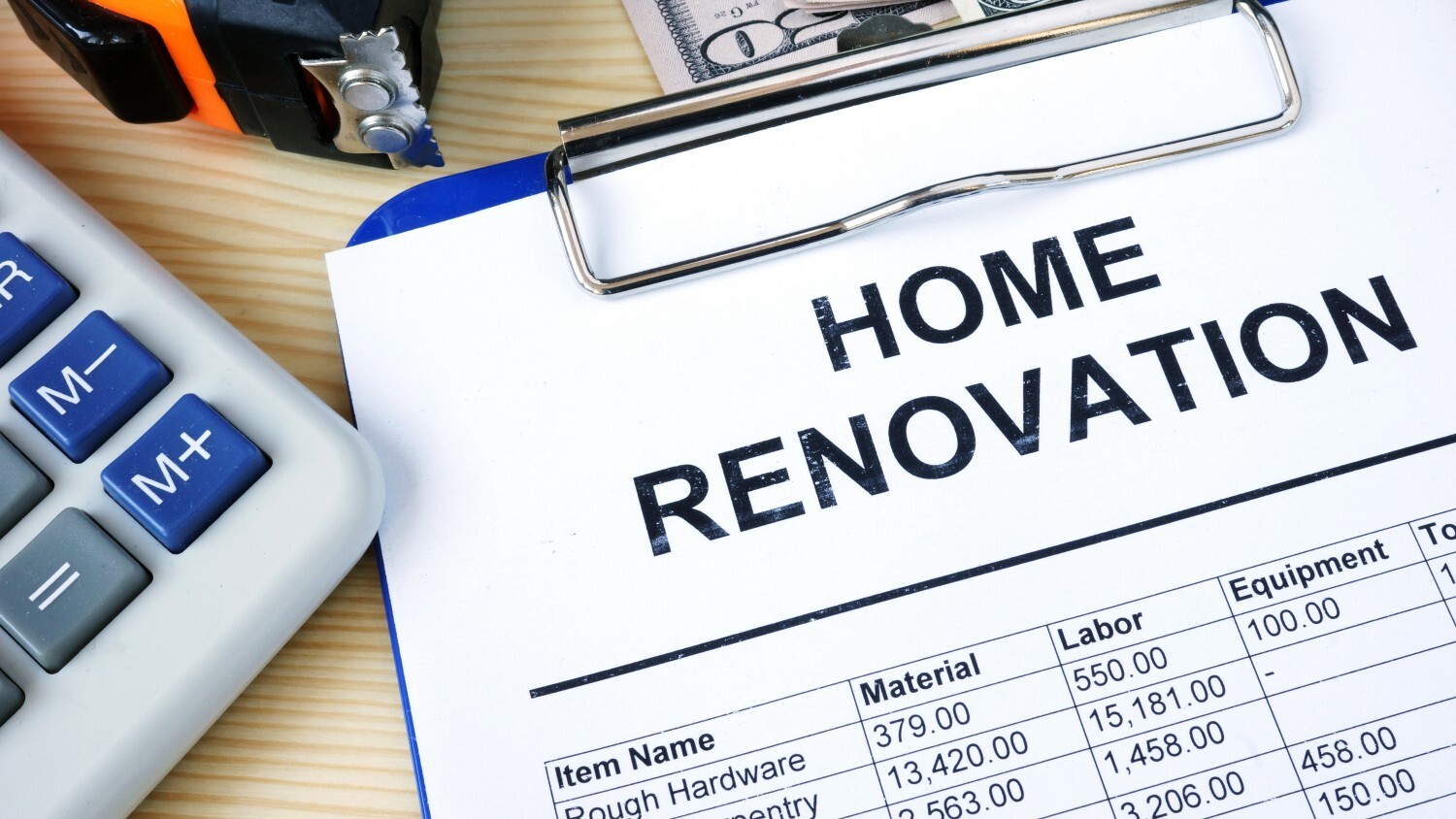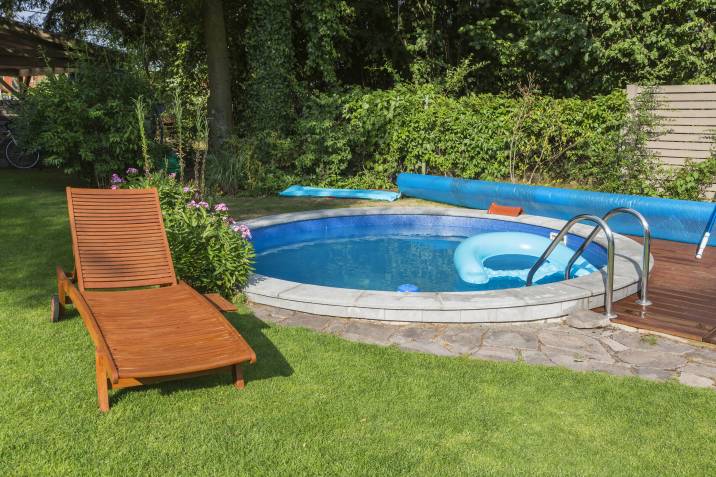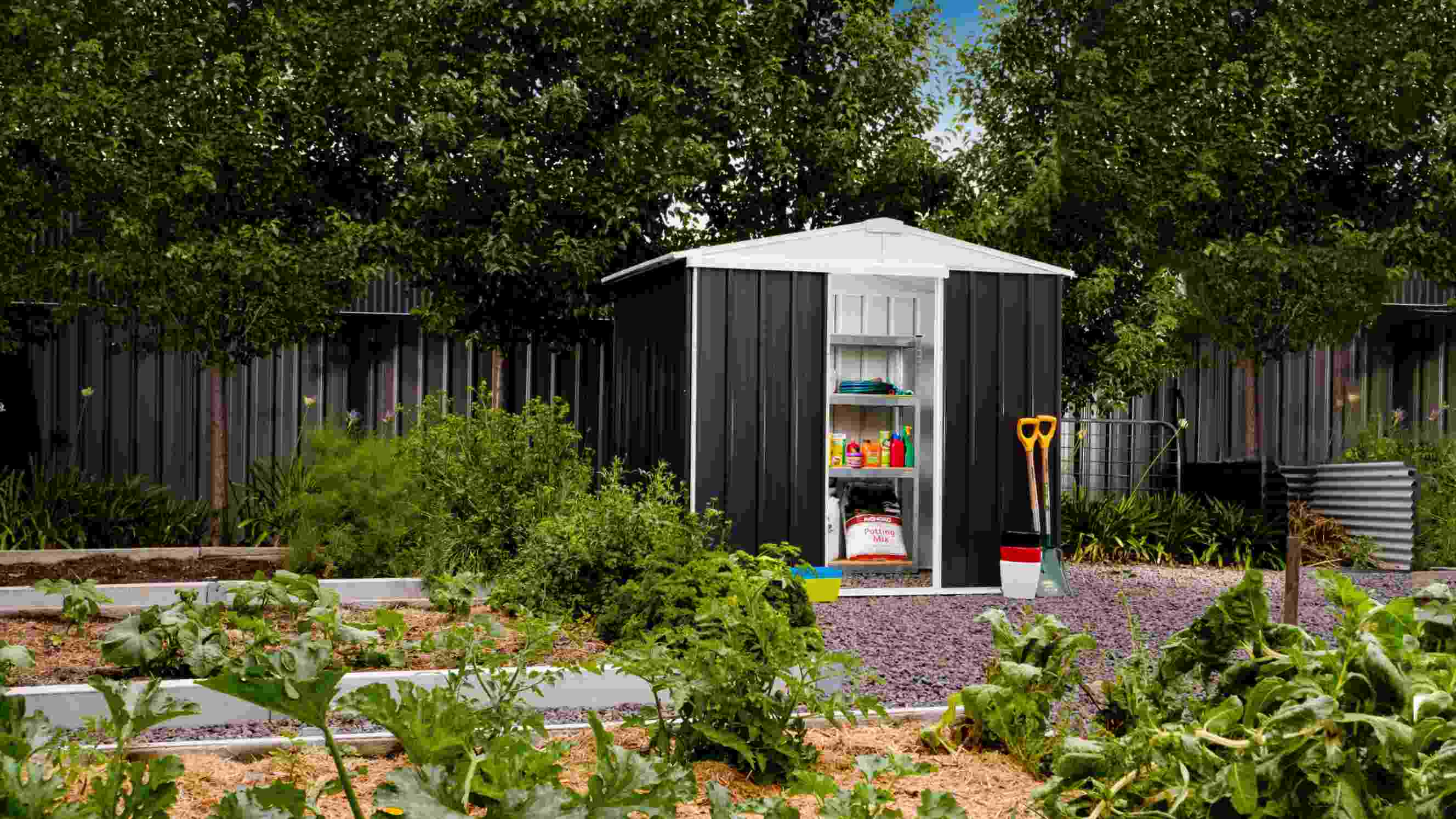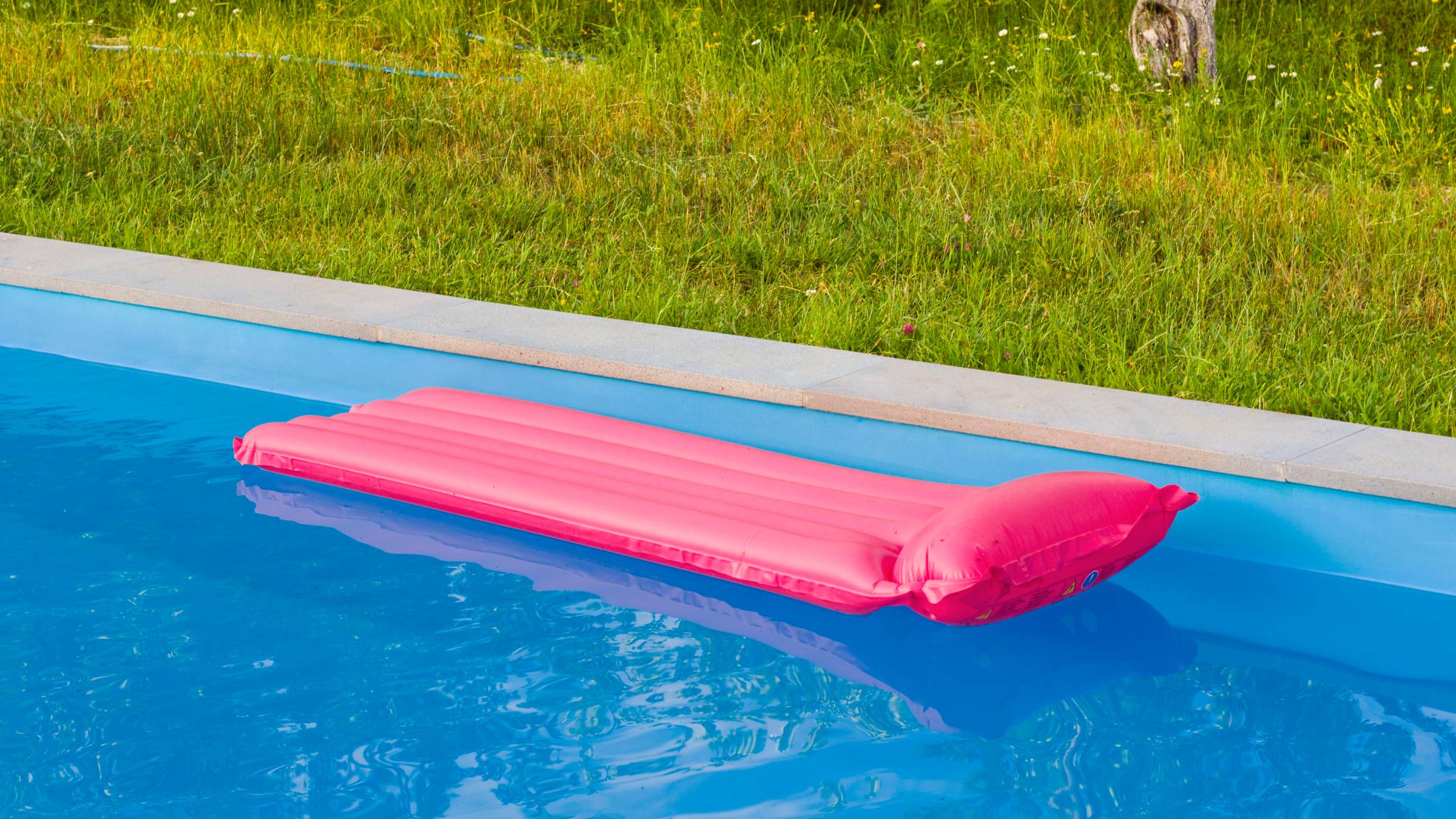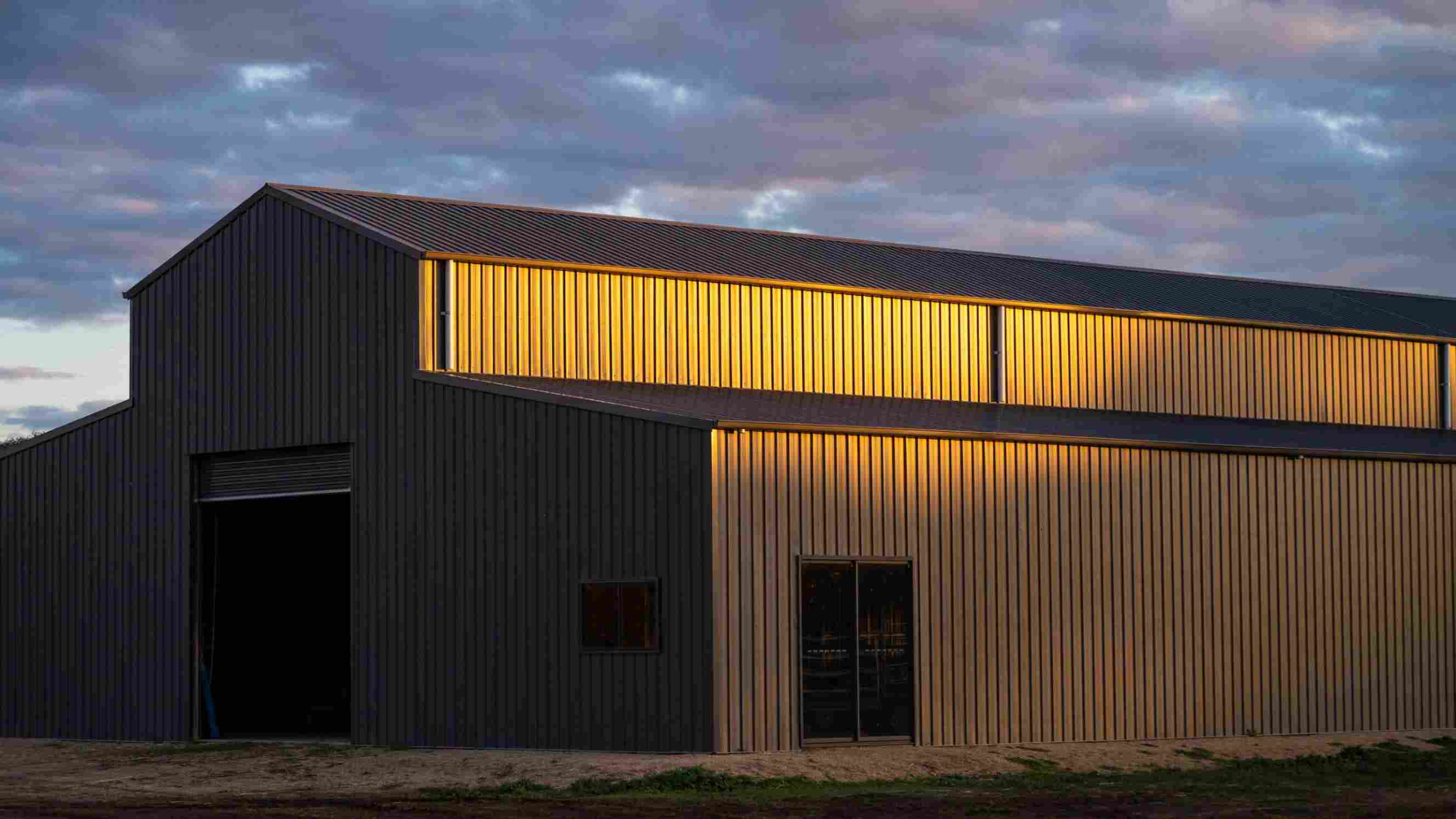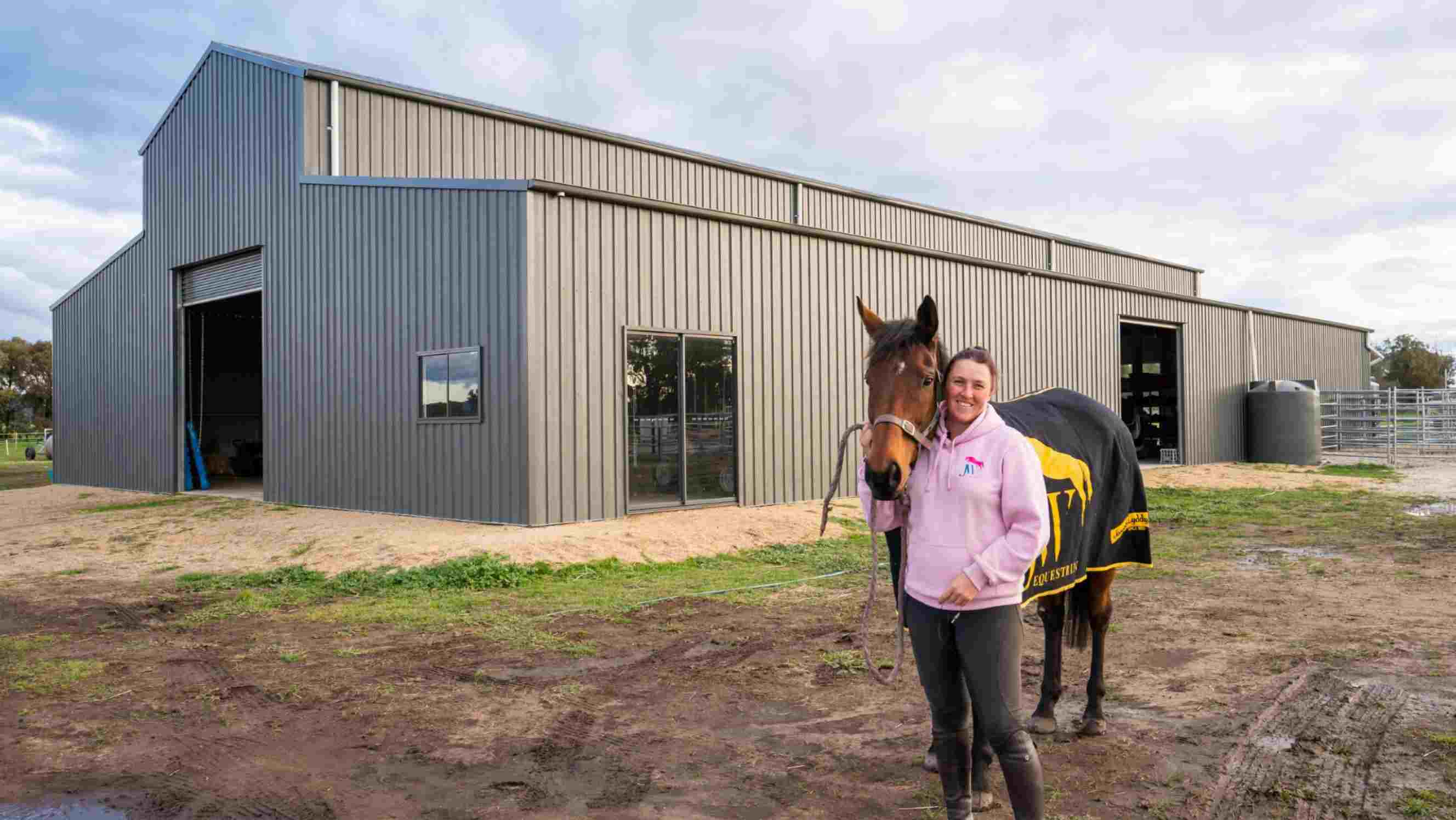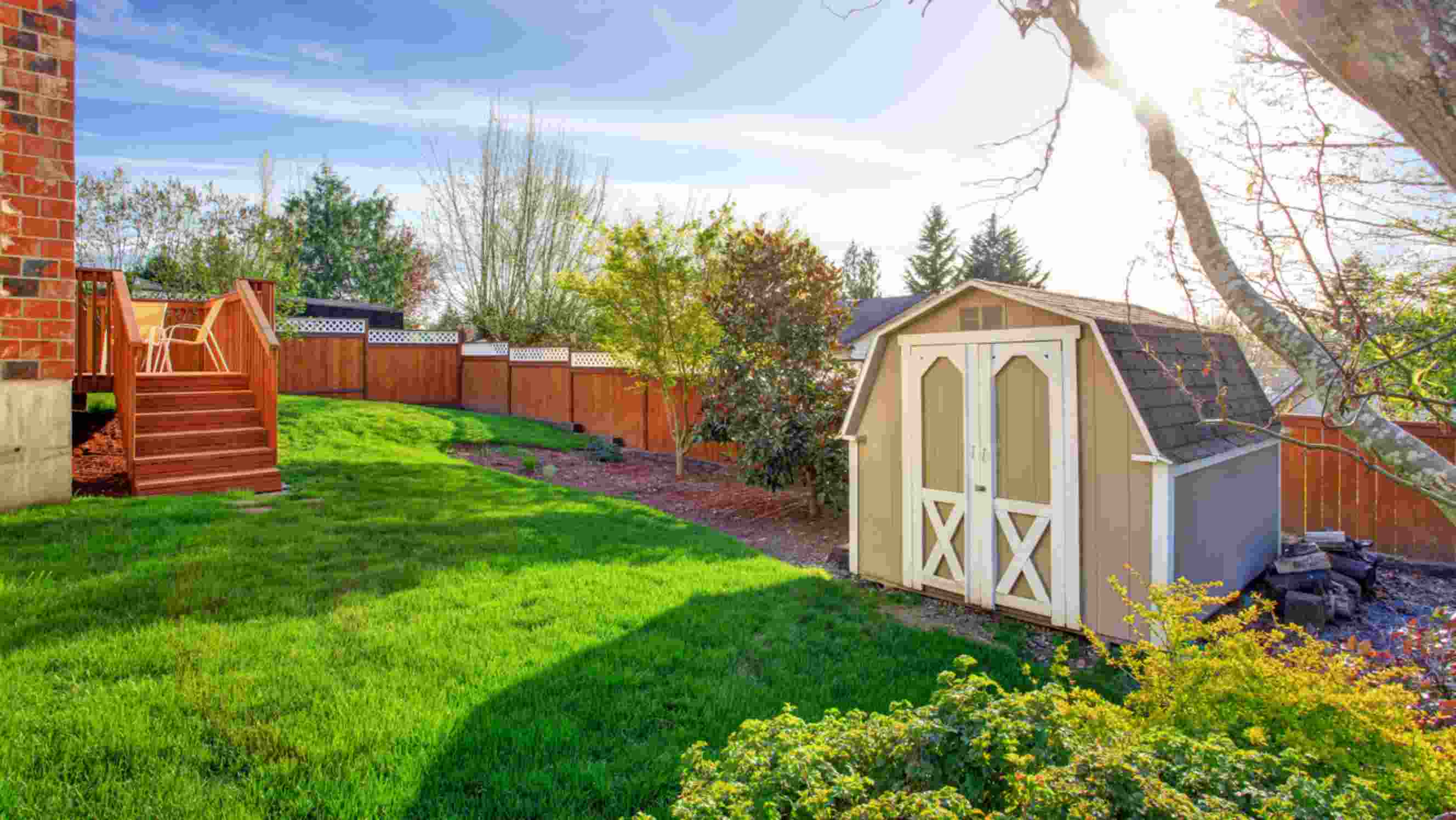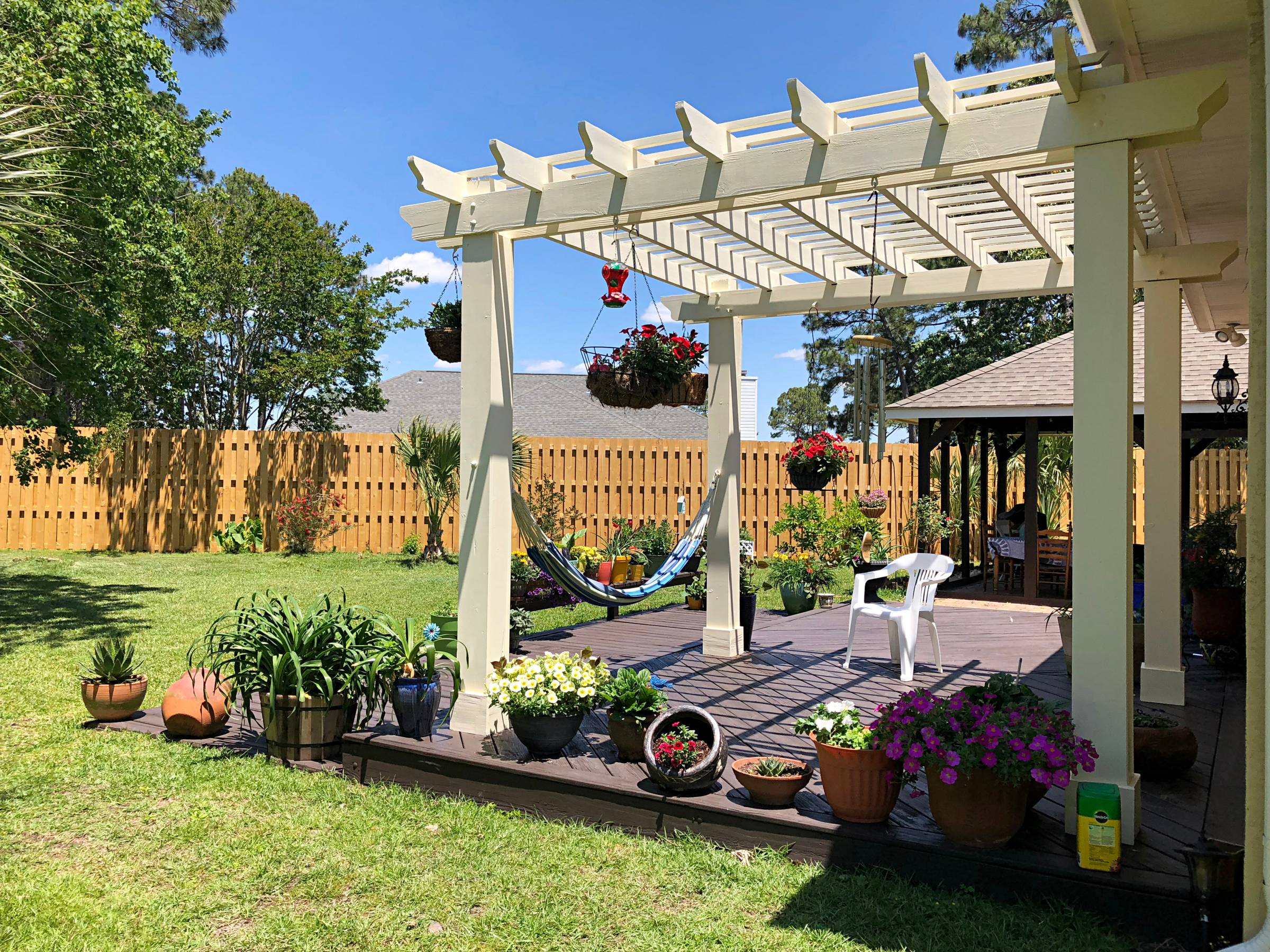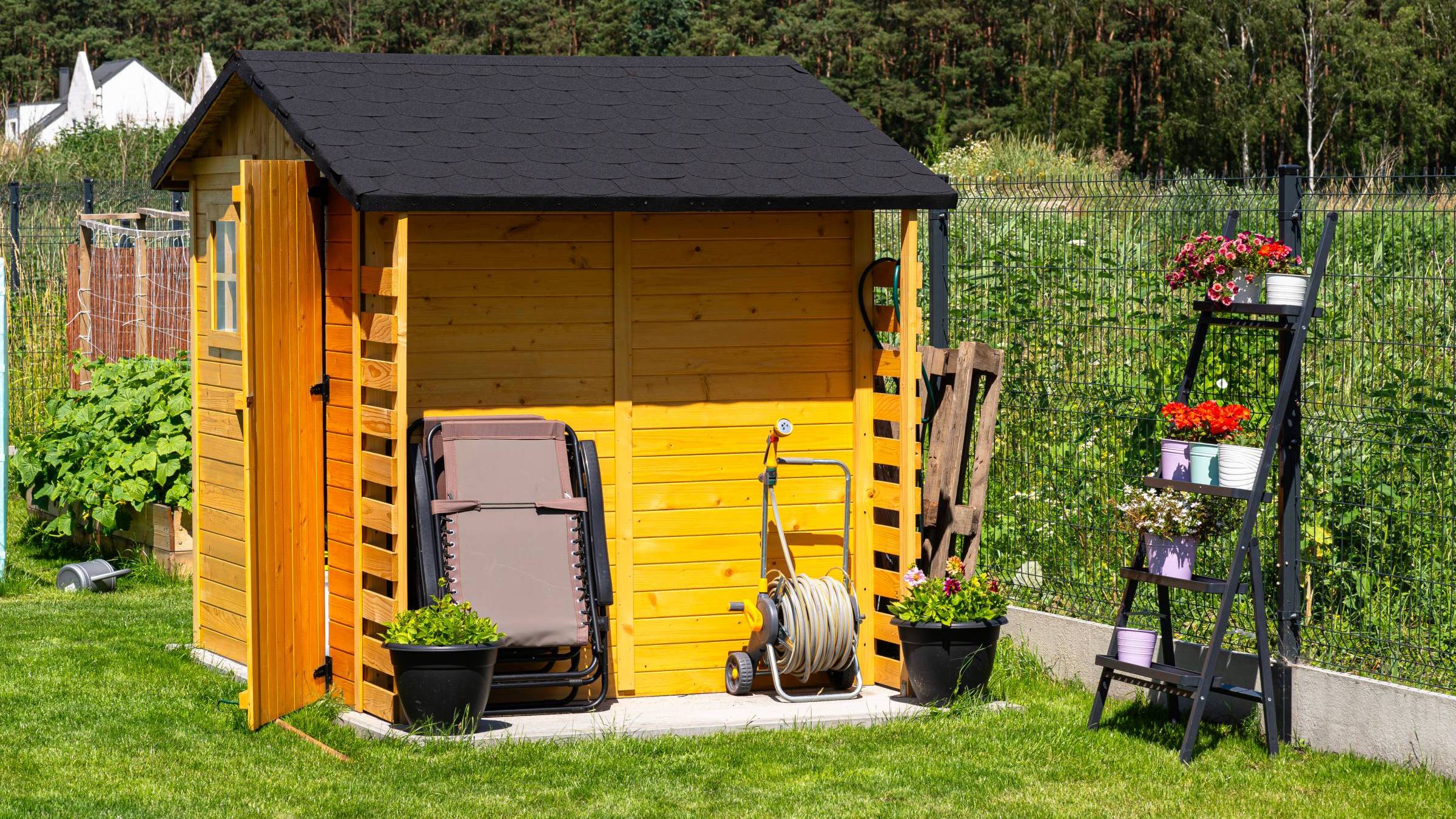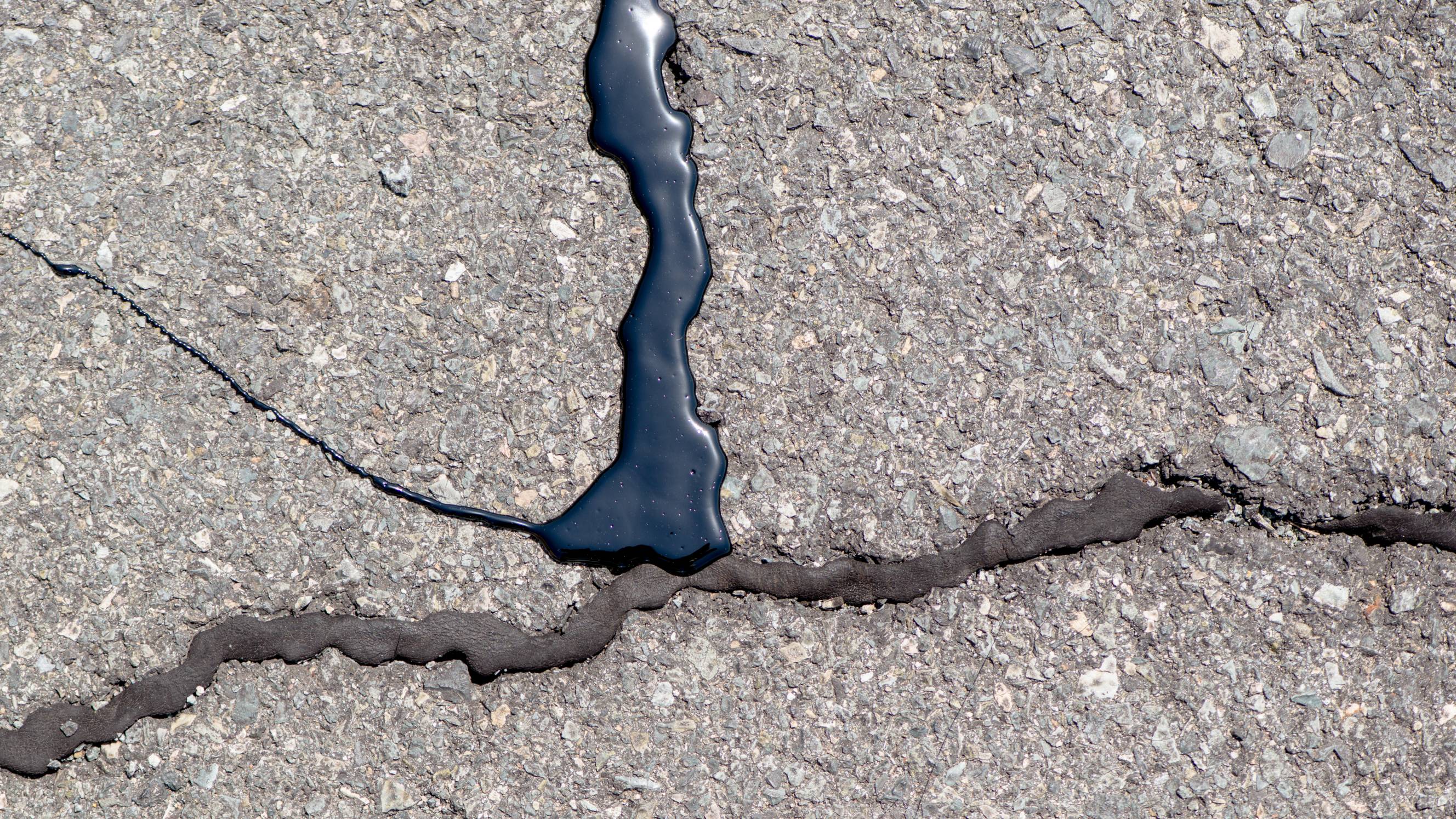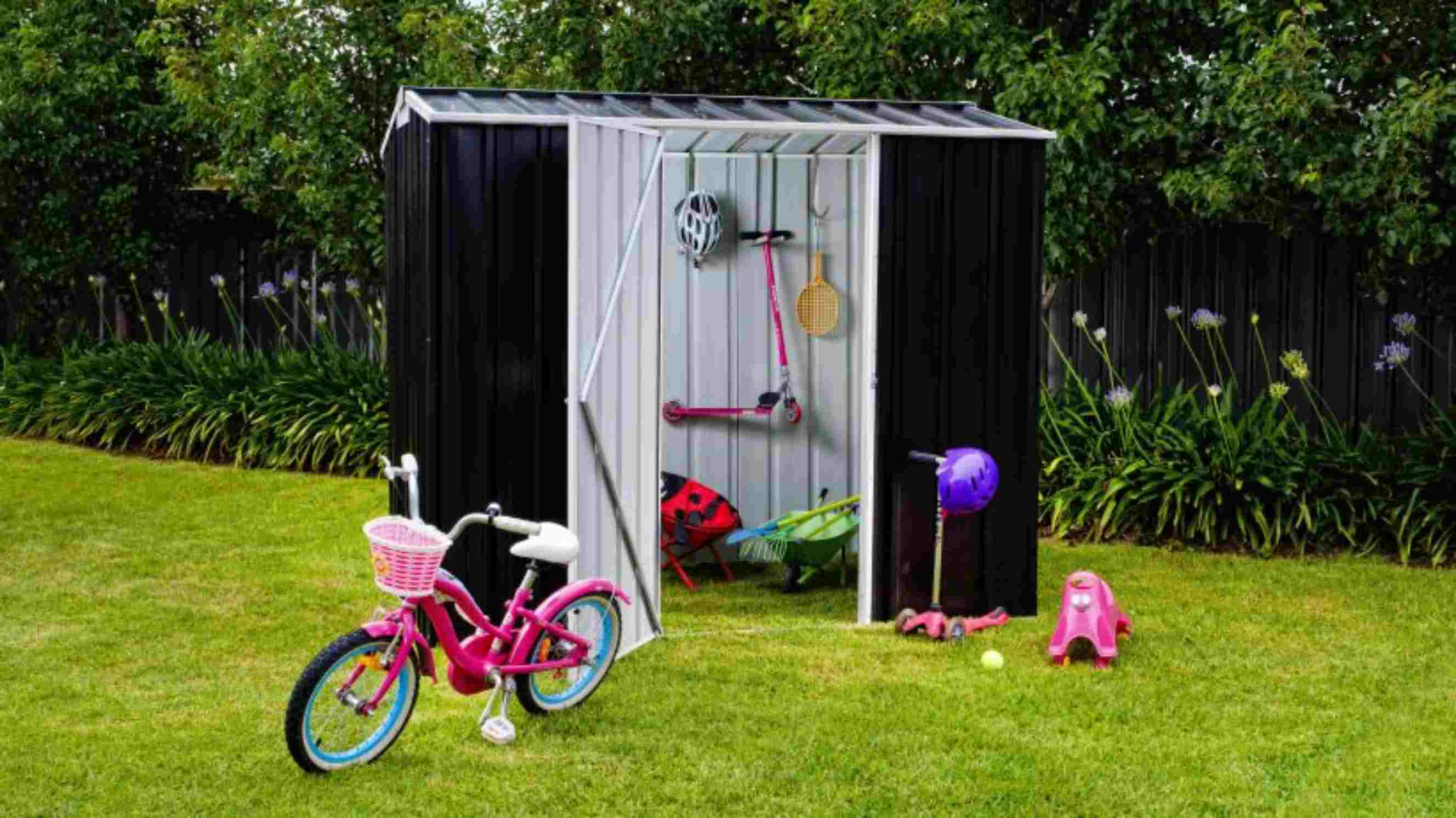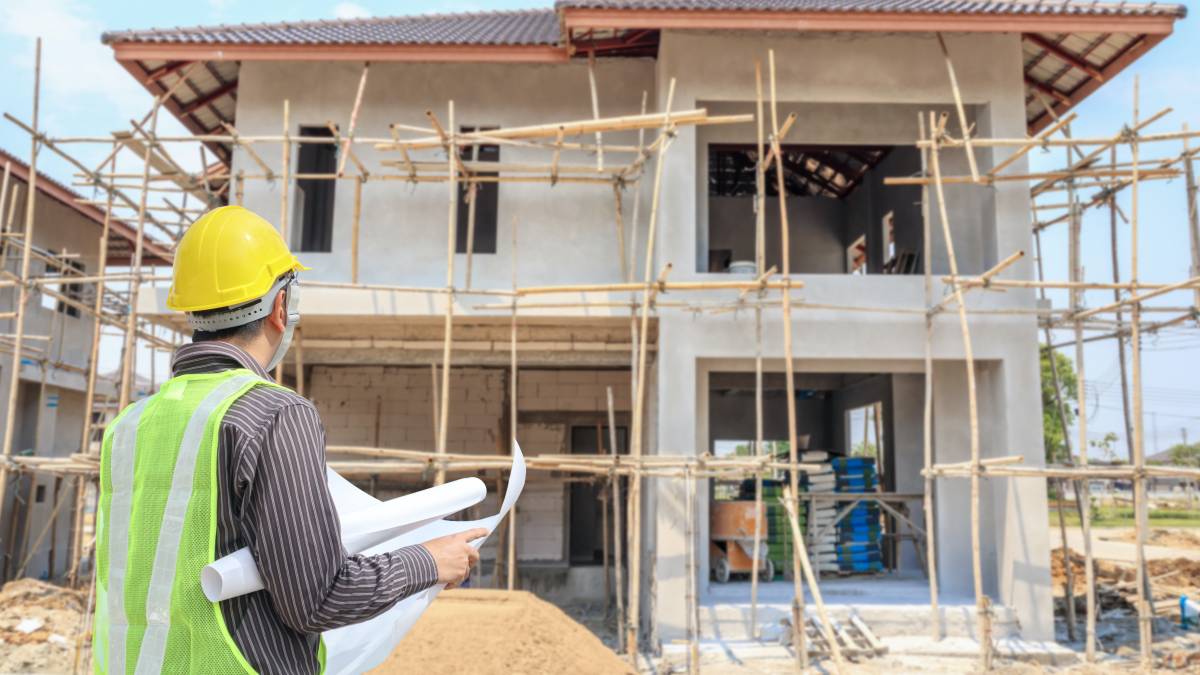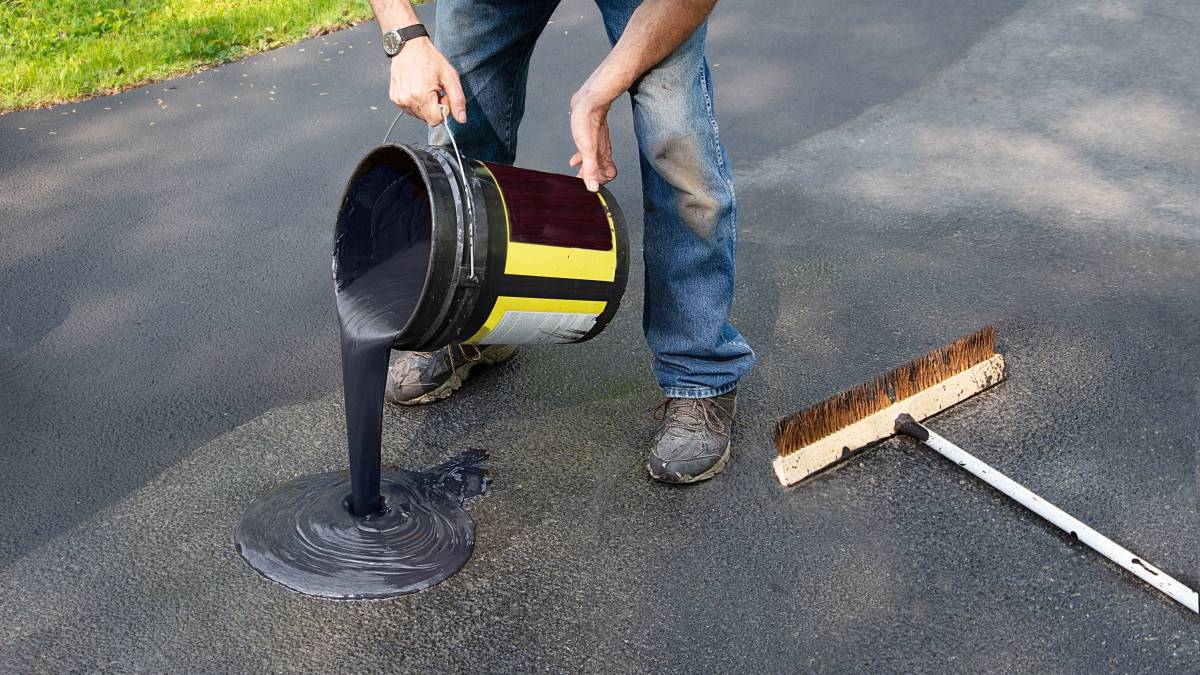- Home/
- Guides/
- Shed Installation/
- Types of Sheds
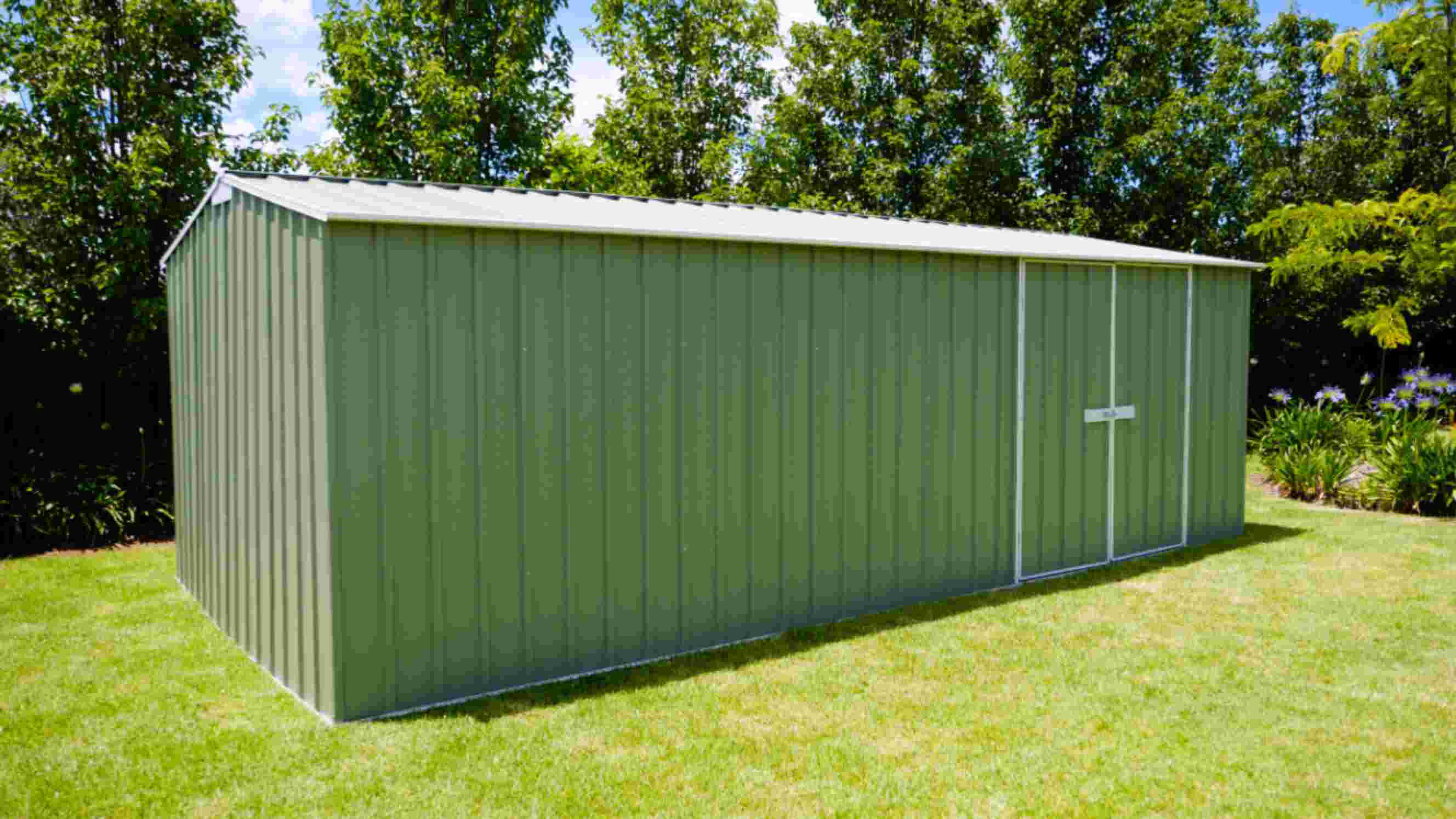
Types of sheds: Choosing the best one for your storage needs
Everything you need to know about different types of sheds.
Find a shed installerLast Updated on
A shed is the perfect addition to any property. It offers valuable storage space for everything from outdoor equipment to lawn furniture. But before you take your pick, you first need to understand the different types of sheds available to find the one that meets your needs.
Each type offers unique benefits, whether you prioritise durability, space, or aesthetic appeal. So, in this guide, we’ll explore all your options to help you choose the ideal shed for your property.
Benefits of having an outdoor shed
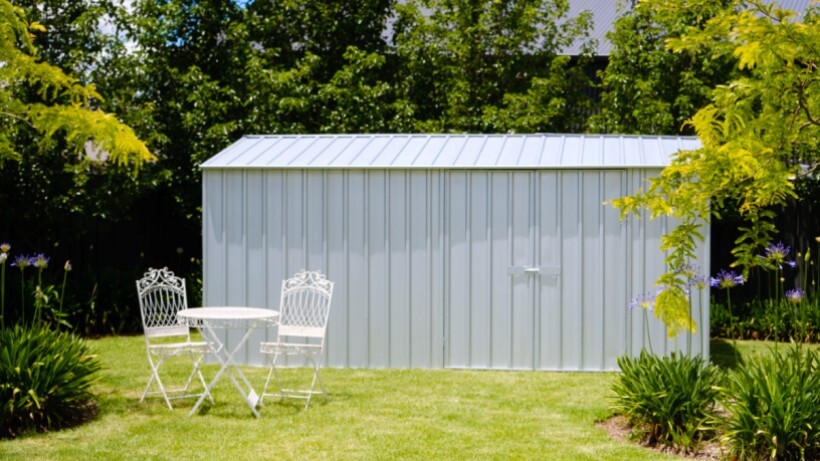 An outdoor shed ideal for organised storage, freeing up indoor space, and enhancing your backyard's functionality (Source: Easyshed)
An outdoor shed ideal for organised storage, freeing up indoor space, and enhancing your backyard's functionality (Source: Easyshed)
Adding an outdoor shed to your property doesn’t just make life more organized and enjoyable. Here are five key benefits of having an outdoor shed:
Increases storage space and reduces clutter
An outdoor shed provides a dedicated space for tools, lawn equipment, and seasonal items. You can even set up custom storage solutions to free up valuable space in your garage or home.
Adds flexibility and versatility
Modern sheds can be customised for various purposes, from additional storage to creating a mini-bar, workshop, or even a cosy retreat.
Enhances kerb appeal and property value
A well-designed shed complements your modern garden and enhances the visual appeal of your backyard, potentially boosting property value.
Creates a private sanctuary
Sheds offer a private space that can be used as a personal retreat or office, making them especially useful for working from home or providing kids with a safe play area.
Protects equipment and valuables from weather and theft
Sheds protect your belongings from harsh weather and add a layer of security.
Types of sheds in terms of materials
When it comes to choosing a shed, the shed material is one of the most important factors to consider. Whether you're thinking metal or wood, you have to pick the kind that’s strong enough and can match your specific needs. Let’s break down the options so you can pick the best for your property.
Metal or steel sheds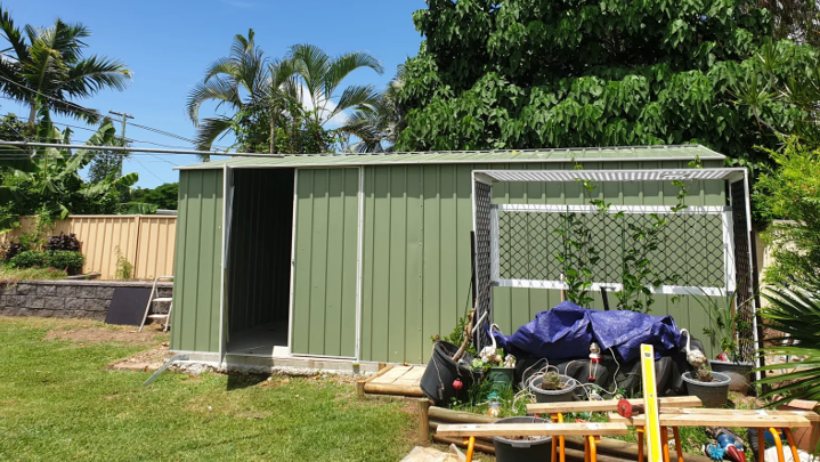 Durable metal or steel sheds from Easyshed, designed for longevity and resistance to harsh weather conditions, perfect for backyard storage solutions (Source: Easyshed)
Durable metal or steel sheds from Easyshed, designed for longevity and resistance to harsh weather conditions, perfect for backyard storage solutions (Source: Easyshed)
Metal sheds are typically made from steel or galvanised aluminium, making them highly durable and resistant to pests and rot. However, it’s important to ensure the metal is properly coated to prevent rusting over time. Metal sheds are also known for being low maintenance. A simple wash with soap and water once a year is usually enough to keep them looking great for years.
In terms of installation, shed manufacturers like Easyshed even incorporate safety features like EdgeSAFE® technology to prevent cuts and injuries. On the downside, metal sheds may not be as visually customisable as wood, but they’re available in various colours to suit your backyard.
- Pros: Durable, pest-resistant, low maintenance
- Cons: Limited customisation, potential for rust if not properly coated
Plastic sheds
Plastic sheds, also called vinyl sheds, are made from high-density polyethylene or vinyl, making them lightweight and easy to move. They’re highly resistant to rot, mould, and rust, which means minimal maintenance is required. If you’re looking for a quick and hassle-free setup, plastic sheds are also often easier to assemble.
However, plastic sheds can have limited design options and may not offer the same aesthetic appeal as wood. Nevertheless, they come in a range of sizes and price points, from affordable basic models to larger, reinforced options.
- Pros: Lightweight, easy to assemble, resistant to rot and rust
- Cons: Limited customisation, less visually appealing
Wooden sheds
Wooden sheds are known for their classic, natural look that blends seamlessly into garden environments. They’re highly customisable and can be stained or painted to match your home’s exterior.
While wooden sheds are durable, they require more maintenance compared to metal or plastic options. Regular staining or painting is necessary to prevent rot and termite damage, which means a bit more work in the long run. Despite this, many still choose wooden sheds for their charm and the ability to truly make them their own.
- Pros: Customisable, natural aesthetic, blends well with garden settings
- Cons: Requires regular maintenance, susceptible to rot and pests if untreated
Composite sheds
Composite sheds are made from engineered wood mixed with other fibres, offering the natural look of wood with added durability. They resist termites and fungal decay, making them more maintenance-free compared to traditional wood. Plus, they still offer the option to paint, stain, or seal, giving you flexibility in design.
Composite sheds are generally higher in cost. However, they offer long-term value with minimal upkeep, which can be worth the investment for those wanting a low-maintenance yet visually appealing shed.
- Pros: Durable, low maintenance, customisable with natural wood appeal
- Cons: Higher initial cost
Types of sheds in terms of use
Sheds can serve many different purposes depending on your needs. Let’s explore the various types of sheds based on how you plan to use them, so you can find the perfect fit for your lifestyle.
Storage sheds
Storage sheds are perfect for keeping tools, seasonal decorations, and lawn equipment organised and protected from the weather. They can be as simple as small metal or plastic models or as elaborate as larger wooden options with customisable shelving and racks. If you need a straightforward solution to reduce clutter and keep everything easily accessible, storage sheds are a practical choice.
Garden sheds
Garden sheds are designed specifically for gardening enthusiasts who need a dedicated space for tools, potting soil, seeds, and other essentials. Many garden shed designs include windows or skylights to provide natural light to plants.
While installation costs for garden sheds can vary, investing in a garden shed can transform your outdoor space into an efficient gardening hub. Some even incorporate a small workspace or potting bench, so it’s easy to handle gardening tasks all in one spot.
Workshop sheds
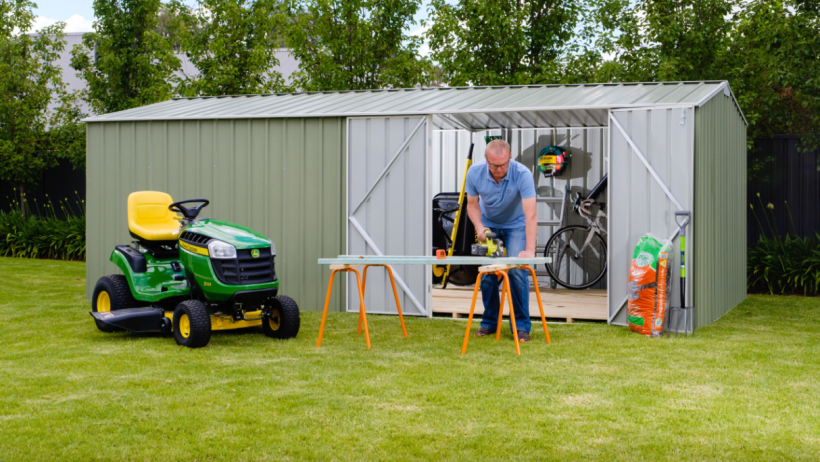 A functional workshop shed from Easyshed that's used for storing tools and equipment for DIY and home projects (Source: Easyshed)
A functional workshop shed from Easyshed that's used for storing tools and equipment for DIY and home projects (Source: Easyshed)
Workshop sheds are ideal for DIY enthusiasts or anyone needing a dedicated space for hobbies and projects. They often come equipped with workbenches, shelves, and plenty of storage space for tools and materials. Some models include reinforced floors to support heavier equipment and even have electrical outlets for power tools that are typically used in woodworking or other hobby activities.
Workshop sheds can be spacious, with tall versions offering extra vertical storage. Easyshed, for instance, offers options with a sturdy portal frame, ensuring stability for larger builds. With prices ranging from $1,600 to $2,500, workshop sheds offer a solid, long-lasting space to bring creative ideas to life.
Loft sheds
Loft sheds are designed to maximise storage without taking up extra yard space. They include additional vertical storage in the form of a loft area, perfect for keeping items like holiday decorations that you don’t need every day. By using the loft for rarely-used items, the main floor of the shed remains open for tools and equipment you use more frequently.
Garage sheds and carports
Garage sheds and carports can protect larger items like vehicles, lawnmowers, and other bulky equipment. These sheds can be open-sided like a carport or fully enclosed for extra protection. Most garage sheds include double doors for easy access and are built to withstand heavy use, so it’s reliable for whatever you need to store.
Different roof shed styles
The roof also has an impact on the overall shed styles, and it's worth considering when choosing the best fit. From classic gable roofs to modern flat designs, here are roof styles that might be perfect for your needs.
Gable roof
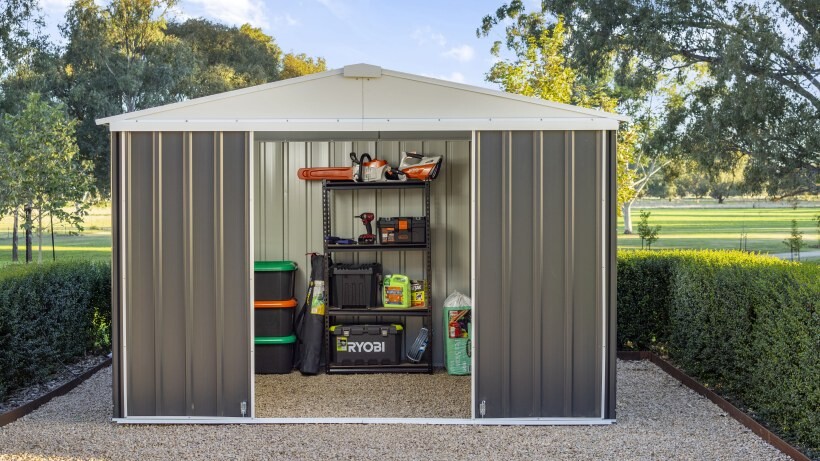 A spacious gable roof shed, ideal for organising tools and gardening essentials (Source: Easyshed)
A spacious gable roof shed, ideal for organising tools and gardening essentials (Source: Easyshed)
A gable roof is the classic A-frame design, with two sloping sides meeting at a peak. This design is great for most weather conditions since it promotes water runoff and prevents buildup.
Some manufacturers even offer 3x3 gable roof sheds that have ample space despite not exceeding 10 sqm. This can often eliminate the need for council approval in many residential areas, but it's important to check local regulations to confirm.
Prices of gable roofs from Easyshed start at $599 to $828, making it a versatile option for homeowners needing extra storage without complications.
Skillion roof
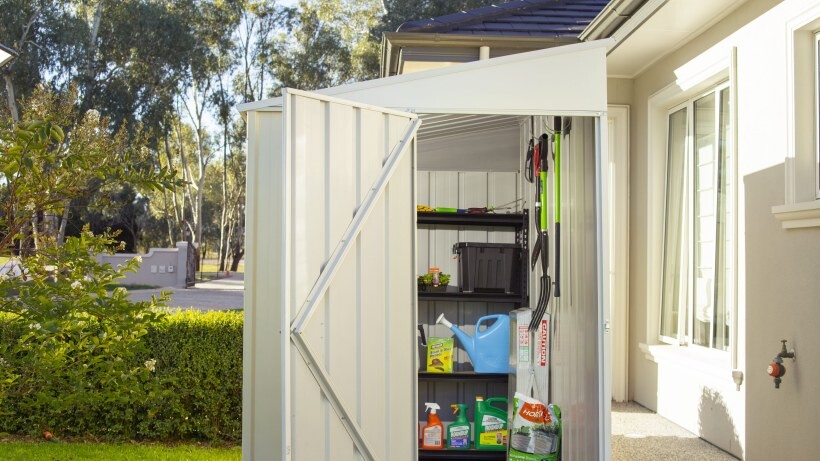 A skillion roof shed by EasyShed, offering practical and compact storage for gardening tools and supplies (Source: Easyshed)
A skillion roof shed by EasyShed, offering practical and compact storage for gardening tools and supplies (Source: Easyshed)
A skillion roof, also called a sloping roof, features a single sloping surface. This gives the shed a modern look while efficiently draining rainwater.
It’s compact, easier to build, and often costs less, so it’s ideal for smaller sheds or those placed near property boundaries. Compact skillion roof sheds are available from manufacturers like Easyshed, with prices typically ranging from $635 to $750, making them an accessible option for homeowners.
Flat roof
A flat roof is the simplest shed roof style, with a slightly angled surface to allow minimal water runoff. It’s best for locations with mild climates where heavy snow or rainfall isn’t an issue. Flat roofs are often used for lean-to sheds or smaller storage units because they blend seamlessly into backyard spaces without standing out.
Heritage roof
A heritage roof is more decorative. It has multiple gables or ornamental trims to match traditional home aesthetics. It’s ideal for larger, high-end sheds that serve as a garden feature or add architectural appeal to the property.
Factors to consider before choosing a shed
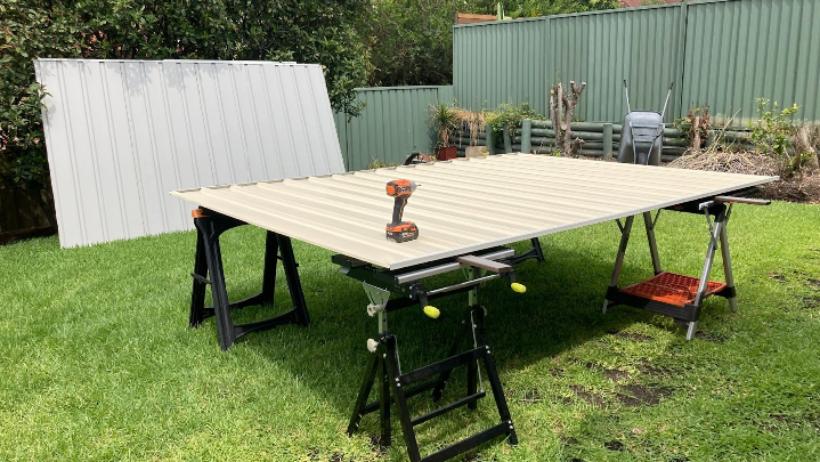 Installing a shed? Consider factors like space, material, and assembly tools for a smooth installation process (Source: Easyshed)
Installing a shed? Consider factors like space, material, and assembly tools for a smooth installation process (Source: Easyshed)
Before choosing and building a shed, there are a few important factors to think about. Each of these can impact how well the shed fits your needs, so it's worth exploring them in detail.
Assess your storage needs
List the items you plan to store to determine the necessary shed size and organisation options, such as shelving, hooks, or extra floor space. If you need the shed for multiple purposes, like storage and workspace, consider getting a larger or lofted shed.
Select your material preferences
Each material—wood, metal, plastic, or composite—has unique benefits and maintenance needs. For instance, if you're planning to insulate your shed in the long run, keep in mind that wood provides good thermal control, while plastic and composite are more maintenance-free but less insulating.
Think about your budget
Set a budget that includes not just the shed but also any customisations, foundations, or permits. Shed designs vary widely in cost, so you better know what you like and whether you can afford it from the get-go.
Consider your location's weather conditions
Choose materials and roof styles that suit your climate. For rainy or humid climates, ensure you use strong shed foundations and choose materials like treated wood or properly coated metal to prevent deterioration.
Research on local building codes and permits
Check with local authorities on shed size, placement, and potential permits, especially if you’re adding features like electricity. If needed, connect with expert builders and verify standard shed sizes to ensure compliance with zoning restrictions, setbacks, and HOA regulations if applicable.
Need a new shed? Find expert installers on Airtasker
Ready to take the next step in adding a shed to your property? Whether it's shed installation or just assembling outdoor furniture in the meantime, you can get the job done without stress.
Post a task on Airtasker today and connect with skilled builders who can help bring your shed project to life. It only takes a few clicks!
FAQs on the different types of sheds
A barn and a shed both provide storage, but barns are typically larger and used for housing animals or farming tools. Meanwhile, sheds are smaller and intended for garden tools or general storage. There are barn sheds that combine the spaciousness of barn styles with the practicality of sheds as well.
Metal and composite sheds usually last the longest due to their durability and resistance to rot, pests, and harsh weather.
Start by removing all items, sweeping out dirt and debris, and wiping down surfaces with a mild cleaner. For a hassle-free option, you can hire local cleaners to take care of it for you.
Find shed installers, fast
Find a shed installer
Related guide pages
Related price pages
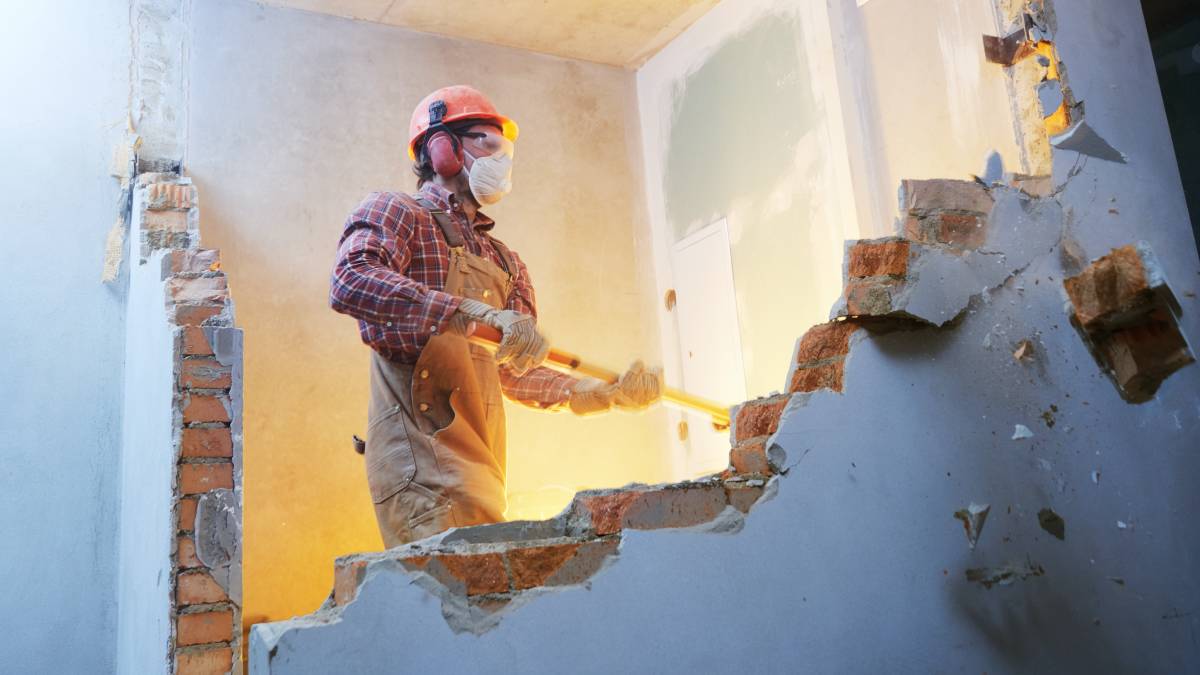
How much does demolition cost?
Read more
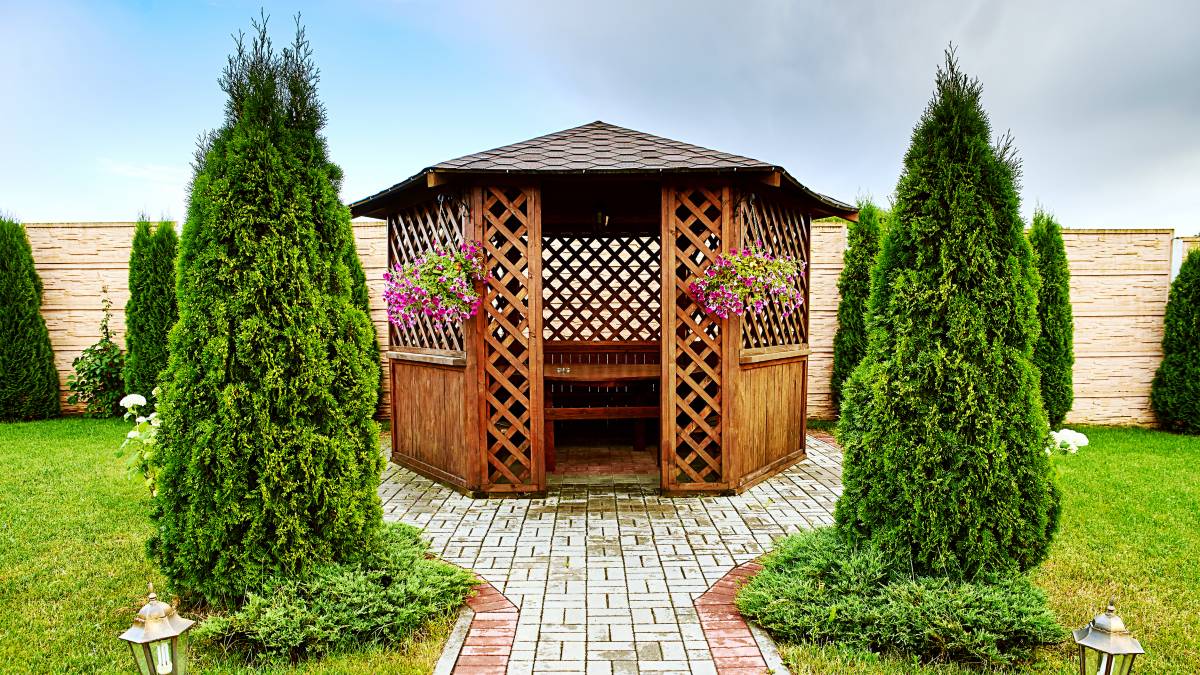
How much does an outdoor gazebo cost?
Read more
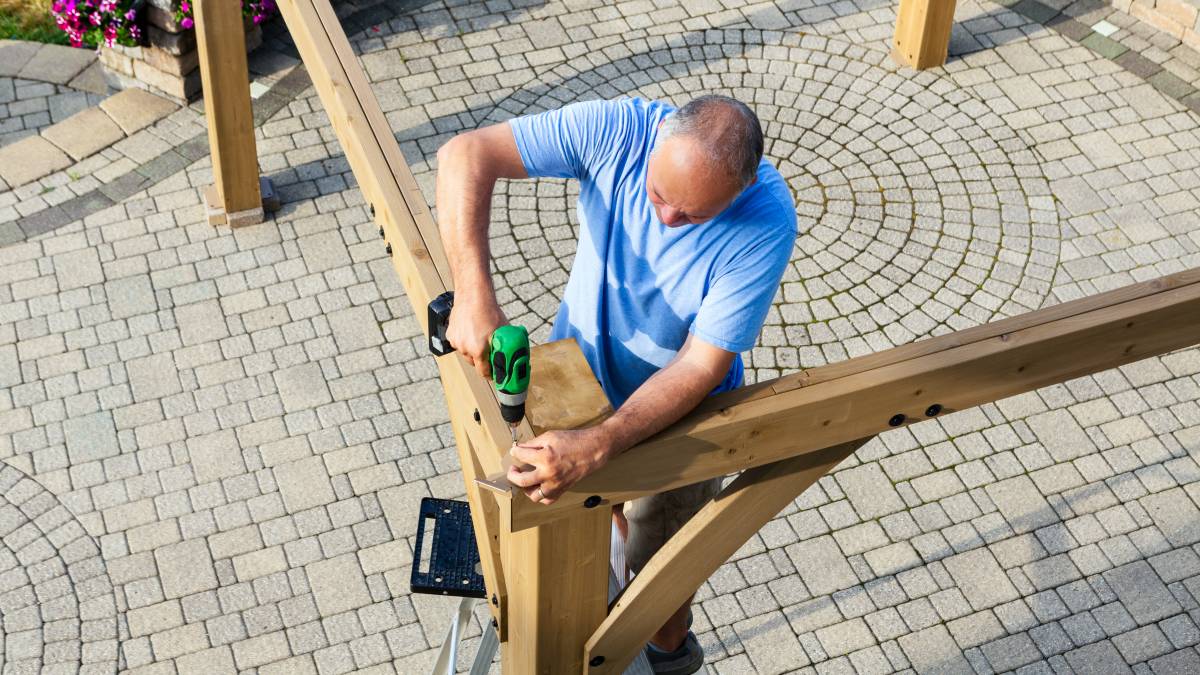
How much does a pergola cost?
Read more
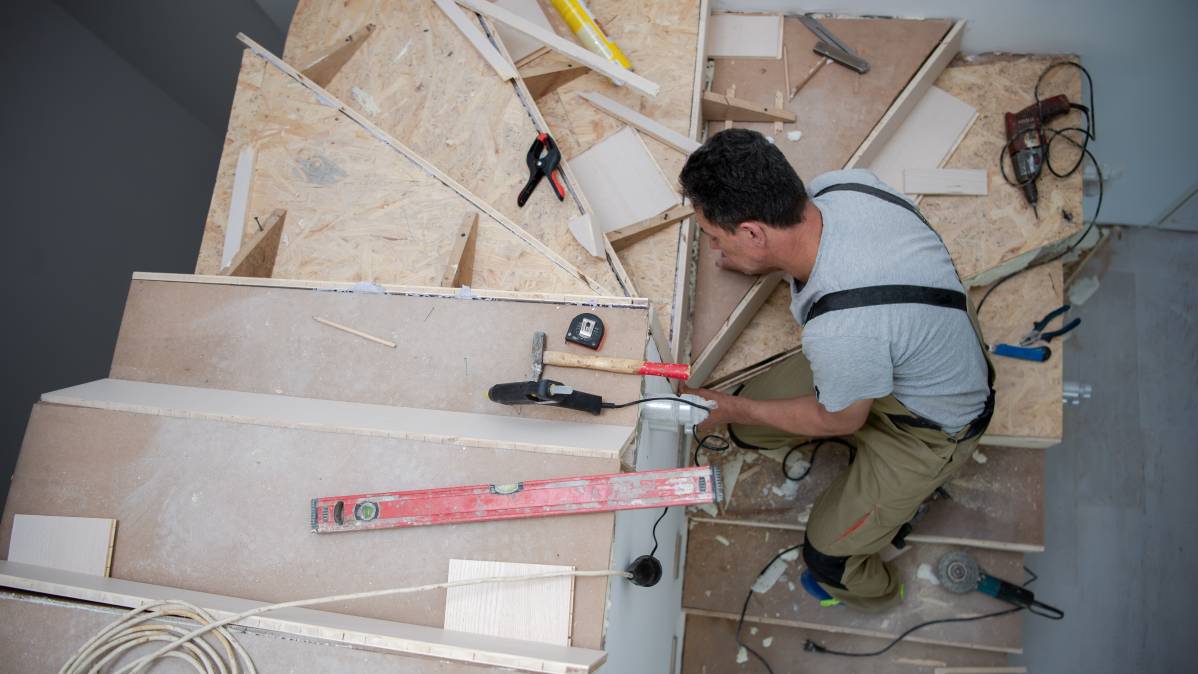
How much does a new staircase cost?
Read more
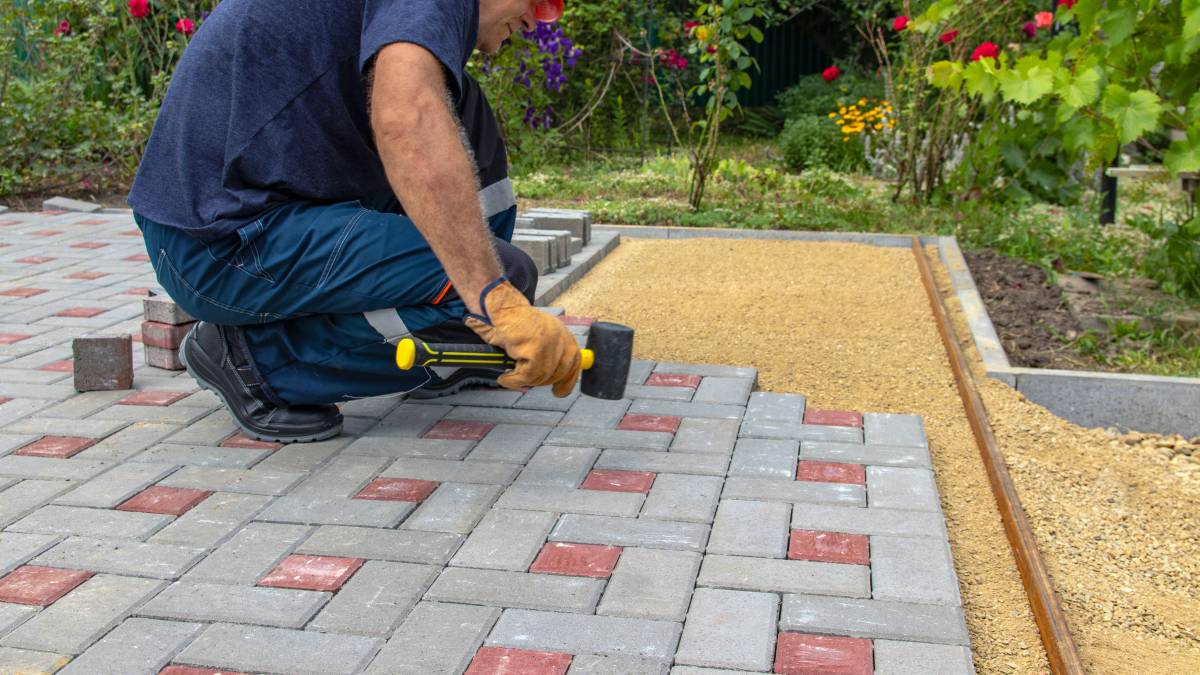
How much do patios cost?
Read more
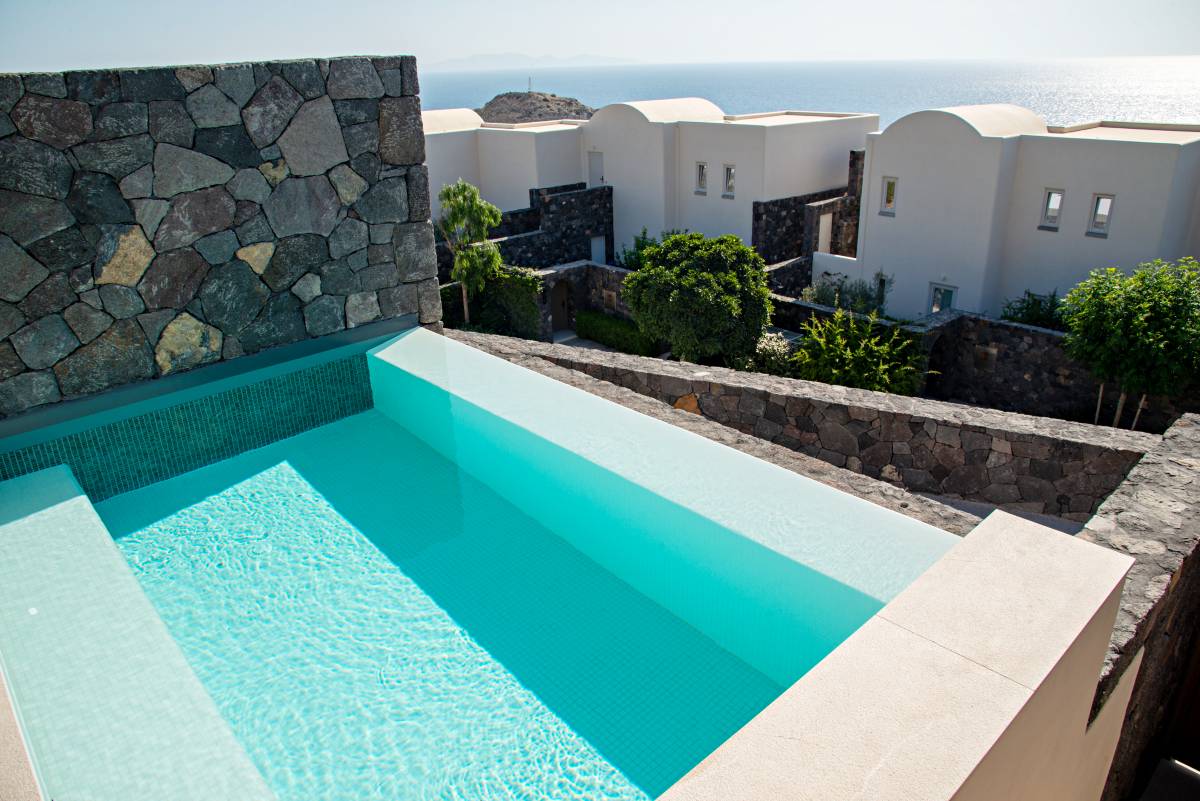
How much does a plunge pool cost?
Read more
